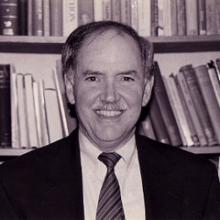非常抱歉,
你要访问的页面不存在,
非常抱歉,
你要访问的页面不存在,
非常抱歉,
你要访问的页面不存在,
验证码:

职称:William R. Kenan, Jr. Professor of Classics
所属学校:University of Virginia-Main Campus
所属院系:classics
所属专业:Classics and Classical Languages, Literatures, and Linguistics, General
联系方式:434-924-6672
A dedicated Wisconsinite and Madisonian, I benefited from a charismatic but tough high school Latin teacher, then went down the street to the University of Wisconsin to encounter equally charismatic teachers like Paul MacKendrick, Walter Agard, and Friedrich Solmsen. They sent me off eventually to Harvard where Zeph Stewart and Sterling Dow taught me Greek religion and Wendell Clausen nurtured a love of Vergil. A year at the American School of Classical Studies confirmed and strengthened interests in all things Greek, ancient and modern. Arthur Stocker, Marvin Colker, and a visit in April during the dogwood season enticed me to UVa in 1970, and I remain entranced by the beauty of the place. It has been a great pleasure to see UVa develop into a first-rate university during my 30 years here. I served as Chair of Classics from 1978-1990 and have had several enjoyable years after that as Director of Undergraduate Studies. Occasional years away, as NEH fellow in Cambridge England, as Member of the Institute of Advanced Study in Princeton, and as Whitehead Professor at the American School in Athens, have been welcome, but one is always happy to return to the countryside, students, and colleagues at Virginia. As a change of pace, I served for three years as Director of the Echols Scholars Program, UVA's undergraduate honors program.
William R. Kenan, Jr. Professor of Classics and Director of Graduate Admissions and the author of The Sacred and Civil Calendar of the Athenian Year, Athenian Popular Religion, Honor Thy Gods: Popular Religion in Greek Tragedy, Herodotus and Religion in the Persian Wars, Ancient Greek Religion, Greek Popular Religion in Greek Philosophy, and articles on topics of Greek religion and literature. His research interests are Greek religious beliefs as manifested in literature, history, philosophy, and everyday life.